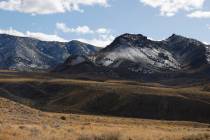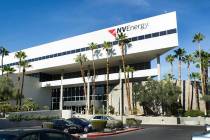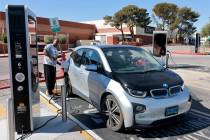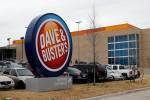Low-carbon exports would suit Nevada, official says
Southern Nevada must reposition itself for the next economy by exporting innovative, low-carbon products such as renewable energy, the vice president of the Brookings Institution said at a panel discussion on how the region can reclaim prosperity.
Bruce Katz, founding director of the Brookings Metropolitan Policy Program, said the U.S. economy requires a major change in direction for exports, which account for only 11 percent of gross domestic product, compared with 40 percent in China and 36 percent in Canada.
"Exporting is almost an unnatural act in the United States," Katz told about 120 community and business leaders Monday at University of Nevada, Las Vegas. "Can we get back into the export game? The answer is decidedly 'yes.'"
Southern Nevada can play in the next economy, but it will require some tough decisions to become an economy based on more than just real estate and consumption, he said.
If one thing good comes from this recession, it's a chance for Southern Nevada to sit back, catch its breath and evaluate what it does right and what it does wrong, UNLV President Neal Smatresk said.
"It's easy to talk about things we can't do," Smatresk said. "What we need to focus on is what we have to do to get better. Now's the time to have that conversation."
Despite having the world's highest emissions, the United States has been slow to embrace the "green" economy, Katz said. The country has invested $94 billion in green economy, compared with China's $220 billion investment, he noted.
"To build the next economy, the United States must connect macro to metro," Katz said. "We need a full-court press to deliver an educated work force. We know this is not going to be easy. We compete in a fiercely competitive world."
The Intermountain West region is dominated by five "megapolitan" areas that vary in the nature, size and competitiveness of their export clusters, Katz said.
Las Vegas has been able to reinvent itself by attracting a higher-end customer for its service-oriented exports. However, the future is in renewable energy, Katz said. Nevada ranks second behind California in both geothermal and solar power.
"Innovation -- that's been the historic catalyst for economic growth in the past," Katz said. "We've done it before. Metros must innovate where they should."
Average labor productivity in the Intermountain West -- a critical measure of economic potential -- rose to $85,400 in 2005 from $79,500 in 2001, but the region remained slightly beneath the national average of $87,800, Brookings reported.
Contact reporter Hubble Smith at hsmith@reviewjournal.com or 702-383-0491.























